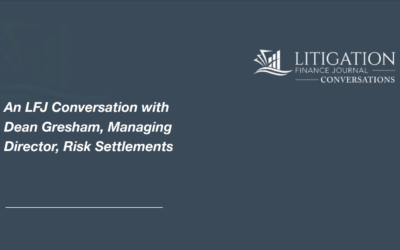Dougan v. Centerplate, Inc., et al.,1 began as a wage-and-hour class action filed in state court. Defendants removed the case to the Southern District of California. Shortly thereafter, plaintiff filed a separate—but similar—action in state court pursuant to California’s Private Attorneys General Act. Defendants were unable to remove the second state court action to federal court.
Fast forward a year. Following mediation (but long before any class certification briefing had begun), the parties negotiated an agreement that called for the “global settlement approval process to proceed in [state court],” with the parties agreeing to dismiss the federal case once the state court matter was finally resolved. The Southern District of California asked the parties to address what level of scrutiny, if any, it should apply to such a pre-class certification dismissal stipulation. In response, the parties argued that pursuant to Fed. R. Civ. P. 23(e), dismissal should be automatic. To make a long matter short, the court agreed, concluding that “the 2003 amendment to Rule 23(e) was intended to take courts out of the business of reviewing pre-certification voluntary dismissals.”2
A brief overview of the federal rules will help explain this.
FRCP 41(a)(1)(ii) permits a plaintiff to “dismiss an action without a court order by filing … a stipulation of dismissal signed by all parties who have appeared.” This, according to the Ninth Circuit, confers an “absolute right” to dismiss an action.3 Indeed, such a stipulation of dismissal causes the district court in which the action is pending to lose jurisdiction over the case.4 But Fed. R. Civ. P. 41 is not the end of the matter, as it is “subject to Rule[] 23(e).”5
Before 2003, the Ninth Circuit interpreted then-Rule 23(e) to mandate court review of pre-certification voluntary dismissals in class actions. In Diaz v. Trust Territory of the Pacific Islands,6 the Ninth Circuit found that a district court must hold a hearing and “inquire into the terms and circumstances of any dismissal or compromise to ensure that it is not collusive or prejudicial” before accepting the parties’ dismissal stipulation.
But the 2003 amendment to Fed. R. Civ. P. 23(e) changed this, as the Rule now reads: “[t]he claims, issues, or defenses of a certified class—or a class proposed to be certified for purposes of settlement—may be settled, voluntarily dismissed, or compromised only with the court’s approval.”7 Despite this unambiguous language, courts in the Ninth Circuit have split on whether to substantively review pre-certification dismissals.8 In Centerplate, Judge Sammartino tries to slam the door on the notion that the district court has any role in assessing pre-certification voluntary dismissals, writing: “The legislative history of the 2003 amendment to Rule 23(e) is inconsistent with the approach” taken by courts mandating a review.9
And how does Judge Sammartino know this? Because the Rule’s drafters initially proposed for public comment a version of Rule 23(e) that would have required courts to “approve a voluntary dismissal, withdrawal, or settlement made before a determination whether to certify a class.”10 In other words, a rule that would have followed Diaz. But after public comment, the drafters revised the proposed rule to “delete the requirement that the parties must win court approval for a precertification dismissal or settlement.”11 According to Judge Sammartino, the “Advisory Committee Report demonstrates that the Rules’ drafters made the express decision to reject the Diaz approach.”12 And lest there be any doubt, Judge Sammartino notes that the fact that the parties were looking to certify a class (for settlement purposes) in state court does not trigger any review obligations in the district court.13
Accordingly, Judge Sammartino approved the stipulation and dismissed the case.
***
Dougan is a thoughtful and well-reasoned decision that should help litigants get comfortable with the prospect of dismissing a federal putative class action in favor of one pending in state court. Such a dismissal, so long as it is agreed to by all parties, should be automatic and need not trigger or require any substantive review by the court.
***
Certum Group, the industry leader in structuring class action settlements, can help defendants in class action litigation evaluate the litigation options and design an optimal settlement structure that is backed by full risk transfer to an insurer. Certum Group offers two insurance solutions for defendants in class action litigation.
Class Action Settlement Insurance (CASI) provides companies with the certainty they need to get back to business. It is the only product on the market that allows companies to mitigate, cap, and transfer the financial risk of settlement in existing class action litigation. Designed by Certum Group in response to businesses’ need for financial certainty in class action lawsuits and resulting settlements, CASI eliminates the unintended consequences of settlement and helps businesses exit litigation for a known, fixed cost.
Litigation Buyout (LBO) Insurance provides companies with the ability to successfully ring-fence litigation exposure and transfer the full financial risk of class action, antitrust, and non-class litigation. With LBO Insurance, the insurance carrier takes on the financial risks and liabilities for businesses – at any time before settlement and for a known, fixed cost. In the context of an M&A transaction or financing, LBO Insurance negates the requirement for the use of escrows or indemnities, providing certainty and finality to both parties to the transaction.
Contact us today to learn more about our creative insurance solutions to resolve existing or to ring-fence threatened or existing litigation for a known, fixed cost.
1. 22-cv-1496 (S.D. Cal.), Dkt. No. 15 (Order Dismissing Entire Action Without Prejudice Pursuant to Fed. R. Civ. P. 41(a)(1)(A)(ii)) (the “Order”).
2. Id. at p.3.
3. Am. Soccer Co. v. Score First Enters., 187 F.3d 1108, 1110 (9th Cir. 1999).
4. Black Rock City, LLC v. Pershing Cnty. Bd. Of Comm’rs, 637 F. App’x 488, 488 (9th Cir. 2016).
5. Fed. R. Civ. P. 41(a)(1)(A).
6. 876 F.2d 1401 (9th Cir. 1989).
7. Fed. R. Civ. P. 23(e) (emphasis added).
8. See Order at pp. 5-6 (listing cases).
9. Id. at p.6 (emphasis added).
10. Id.
11. Id. at p.7.
12. Id.
13. Id. at p.8.







